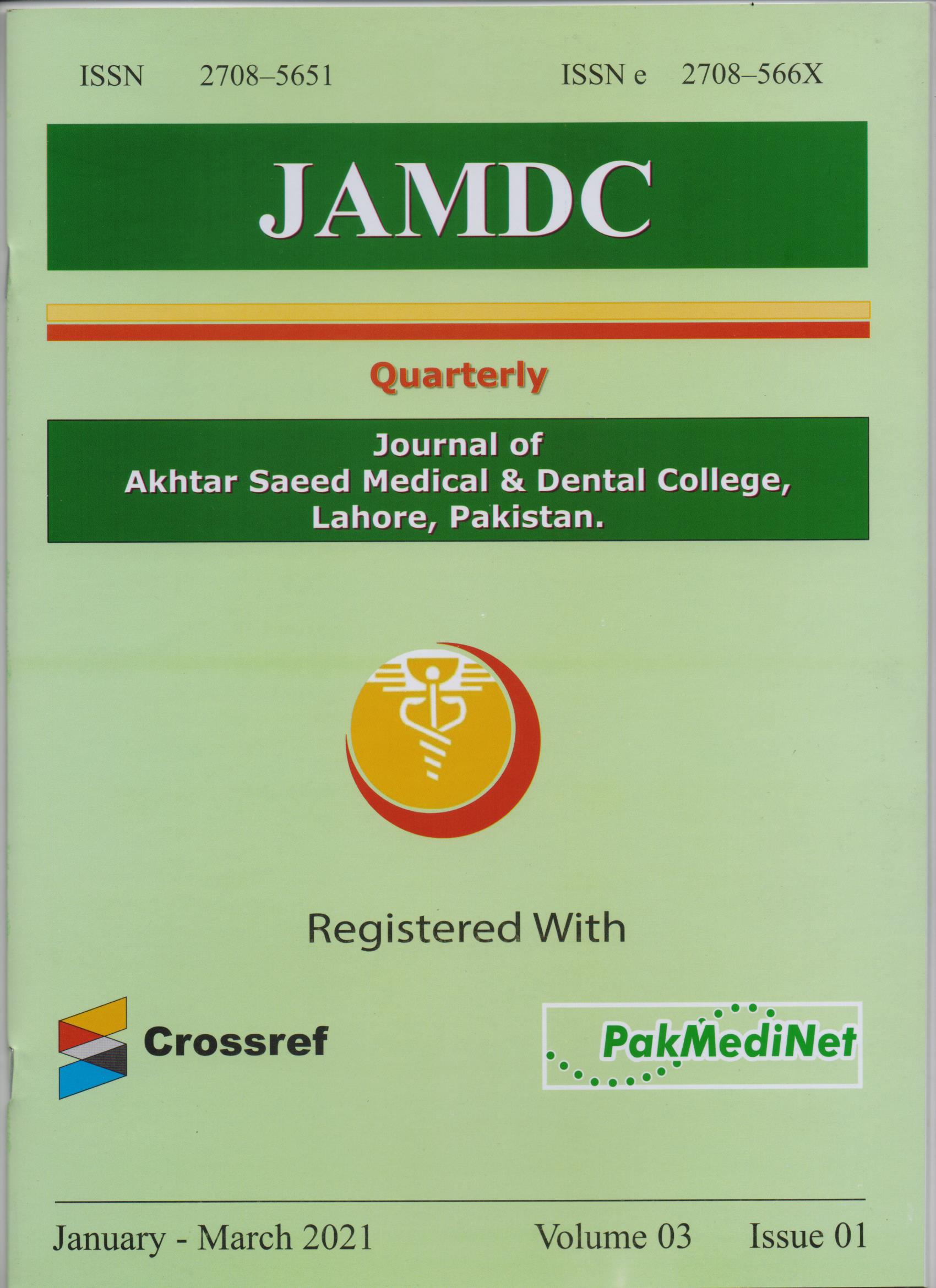EFFECTIVENESS OF ORAL GLUTAMINE CHALLENGE TEST IN DIAGNOSING MINIMAL HEPATIC ENCEPHALOPATHY IN LIVER CIRRHOSIS PATIENTS
Main Article Content
Abstract
Background:
Due to the lack of a gold standard test, it is difficult to diagnose minimal hepatic encephalopathy. Oral glutamine challenge has been found to increase blood ammonia in patients with cirrhosis. This study was aimed to investigate the accuracy of the oral glutamine challenge test in diagnosing minimal hepatic encephalopathy
Material and Methods:
This validation study was performed at the gastroenterology unit, East Medical Ward, Mayo Hospital, Lahore, from September 2016 to November 2018 by using the nonprobability convenience sampling technique. All patients included in the study had undergone a baseline blood ammonia measurement and were administered Trail Making Test-A and B; those having an abnormal test were diagnosed to have minimal hepatic encephalopathy (MHE). Arterial blood samples were collected for ammonia measurement. After that, patients were given oral glutamine challenge and blood ammonia levels were again determined after 60 minutes, together with psychometric tests.
Results:
The mean age of study participants was 46.22±10.04 years. Psychometric Test-A showed positive findings in 50 patients. Psychometric Test-B showed the same findings as that of Psychometric Test A. Mean ammonia level before Oral glutamine challenge (OGC) was 88.71±45.20 mg/dL. After the OGC test, the mean ammonia level was 145.16±69.02 mg/dL. The sensitivity and Specificity of OGC to diagnose MHE was 86% and 93.26% respectively. While 87.75% value represents positive prediction and a value of 92.22% suggests negative prediction. Overall diagnostic accuracy of OGC for detecting MHE was 90.65%.
Conclusion:
In liver cirrhosis patients, the oral glutamine challenge test is as effective as a psychometric test for the diagnosis of the MHE

